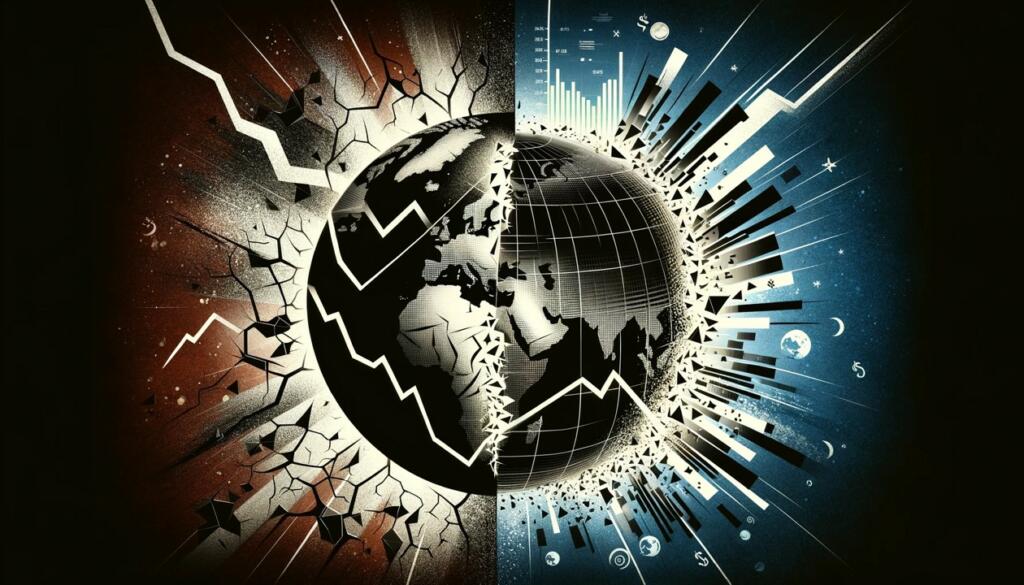Racism and extremism are pervasive issues that have far-reaching consequences, extending beyond social and political spheres to impact global economic stability. These issues not only perpetuate inequality and hinder social progress but also have severe economic implications. Countless studies have shown that racism and extremism can impede economic growth, deter foreign investment, and create an environment of uncertainty and instability.
This article explores the economic consequences of racism and extremism, highlights case studies that demonstrate their impact on the economy, and emphasizes the role of businesses, government policies, education, and international cooperation in addressing these issues.
The Impact of Racism and Extremism on Global Economic Stability
Racism and extremism exert a heavy toll on global economic stability. These divisive ideologies fuel social unrest, disrupt social cohesion, and create an environment of fear and uncertainty. In societies plagued by racism and extremism, individuals from marginalized communities face significant barriers to economic opportunities. Read more about it in this post.
Discrimination in employment, housing, and education limits their access to resources and hinders their economic mobility. This exclusionary environment not only perpetuates inequality but also leads to a loss of human capital and productivity.
Furthermore, racism and extremism can deter foreign investment. Companies are reluctant to invest in regions where racial tensions and extremist ideologies prevail, as they perceive such environments to be unstable and risky. This lack of investment deprives communities of much-needed economic growth, employment opportunities, and technological advancements. It also hampers the development of infrastructure and the expansion of industries, exacerbating economic disparities between regions.
Economic Consequences of Racism and Extremism
The economic consequences of racism and extremism are vast and multi-faceted. One of the most significant impacts is the loss of productivity and innovation. When individuals are subjected to discrimination and exclusion based on their race or ethnicity, their talents and skills go untapped. This untapped potential translates into missed economic opportunities and stifles creativity and innovation. By perpetuating systemic racism and extremism, societies squander the intellectual and creative contributions of individuals from diverse backgrounds, hindering overall economic growth.
Moreover, racism and extremism contribute to income inequality. In societies where discrimination is prevalent, marginalized communities often face limited access to quality education, healthcare, and employment opportunities. This lack of access perpetuates a cycle of poverty, creating a stark divide between the haves and have-nots. Income inequality hampers economic growth, as it limits consumption and undermines social stability. It also reduces social mobility, trapping individuals and communities in a cycle of poverty that is difficult to break.
Additionally, racism and extremism can lead to increased social spending. Societies plagued by racism and extremism often witness higher rates of crime and social unrest. This necessitates increased spending on law enforcement, security measures, and social welfare programs. These expenditures divert resources away from other crucial areas such as education, healthcare, and infrastructure development. The resulting strain on public finances further exacerbates economic instability and hampers long-term economic growth.
Promoting Diversity and Inclusivity in the Workplace
Promoting diversity and inclusivity in the workplace is crucial for addressing racism and extremism. Companies must actively work towards building diverse teams and fostering an inclusive corporate culture. This can be achieved through initiatives such as unconscious bias training, mentorship programs for underrepresented groups, and the establishment of employee resource groups.
By creating an environment that celebrates diversity and values the contributions of all individuals, businesses can serve as catalysts for positive change and contribute to the dismantling of systemic racism and extremism.
Education and Awareness: Tools for Combating Racism and Extremism
Education and awareness are powerful tools in the fight against racism and extremism. Schools and educational institutions should incorporate curriculum that promotes understanding, empathy, and critical thinking.
By teaching students about the history of racism and the dangers of extremist ideologies, educators can equip the next generation with the knowledge and skills to challenge and dismantle these harmful beliefs. Additionally, public awareness campaigns can help debunk stereotypes and promote social cohesion, fostering a more inclusive society.
The Importance of International Cooperation in Addressing These Issues
Addressing racism and extremism requires international cooperation and collaboration. Global challenges demand global solutions, and it is essential for nations to work together in tackling these issues.
Sharing best practices, exchanging knowledge, and coordinating efforts can lead to more effective strategies for combating racism and extremism. International organizations, such as the United Nations and regional bodies, play a vital role in facilitating dialogue and cooperation between nations. By fostering a sense of shared responsibility, the international community can work towards a more equitable and stable global economy.
Conclusion
Racism and extremism have profound economic consequences that undermine global stability. The exclusion of marginalized communities, the deterrence of foreign investment, and the perpetuation of income inequality all hinder economic growth and create an environment of uncertainty.
Businesses, governments, and individuals must work together to combat racism and extremism by fostering diversity and inclusivity, implementing effective policies and initiatives, promoting education and awareness, and engaging in international cooperation. By addressing these issues head-on, we can build a more equitable and prosperous world for all.
